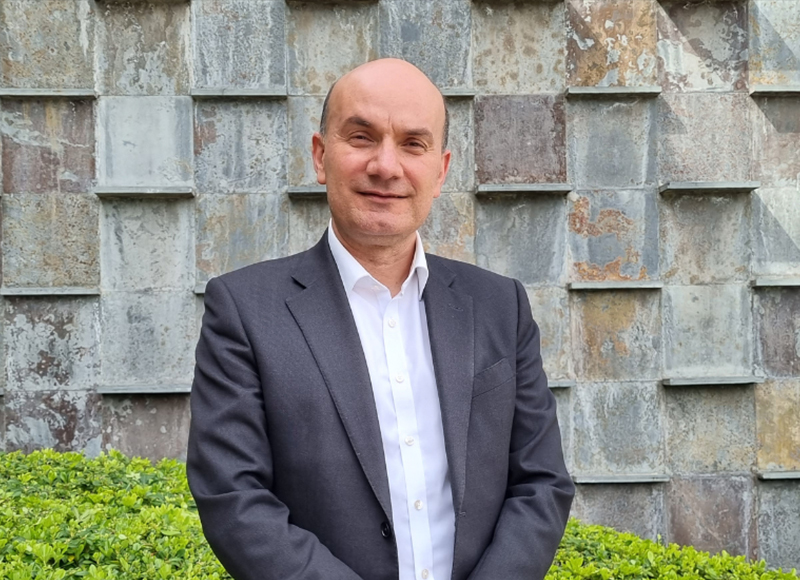
29 Nov Jorge Cantallopts, CESCO: “Delay in Permit Processing is Seriously Affecting Mining Development”
Interview with Jorge Cantallopts in Minería Chilena
“We firmly believe that the key lies in shortening timelines and reducing administrative uncertainties that discourage investment,” says the Executive Director of the Center for Copper and Mining Studies.
In the last two decades, there has been a stagnation in Chile’s copper production. Regarding recent years, and particularly in recent months, several experts consider that the approval times for permits have been one of the factors slowing down the possibilities of the national mining sector recovering its position.
In this context, the executive director of Cesco, Jorge Cantallopts, has stated that it is necessary to work on an improvement for permit processing.
What does permitting involve and imply?
Firstly, I must affirm that I tend to agree with the executive director of the Environmental Assessment Service (SEA) that the term “permisology,” although widely used, may not be appropriate because it tends to simplify a problem that has become very complex and has solutions of different natures.
The positive aspect is that beyond the word, there is finally a consensus among industry representatives, former officials, and current government authorities on the need to expedite processes. For example, permits for large mining projects are taking almost 10 years, a fact described as “insane” by President Gabriel Boric himself, who also stated that our permit system in Chile is “inconsistent and irrational.”
These statements indicate that the delay in permit processing for implementing projects is seriously affecting mining development. A report from the Center for Copper and Mining Studies (CESCO) published this year shows that both due to permit processes and other engineering challenges, large-scale mining investment projects are taking 4.3 years longer than expected to materialize, with a cost increase of 65%. Additionally, DF revealed that 10 investment projects worth US$1.5 billion are stalled due to multiple procedures and bureaucracy involving the Ministers’ Committee, negatively impacting the competitiveness of the Chilean mining sector and a possible 40% decrease in investment by 2024.
What consequences could this situation bring?
This delay is impacting the ability to materialize new projects, leading to an extended stagnation that has lasted for several years, affecting the country’s economy. Mining companies may also seek different growth strategies, including exploring new mining districts, which would significantly impact countries with a strong mining tradition like Chile.
This issue was a significant part of the agenda in the latest edition of the Asia Copper Week, organized by CESCO and the China Nonferrous Metals Industry Association (CNIA). The central theme was the difficulty the mining industry has had in realizing the enormous potential of the so-called energy transition, which is directly related to the delays in the permit acquisition processes.
“It’s not about having less demanding systems”
What is Cesco’s stance?
At CESCO, we have raised our voice to make this problem known and find solutions together. Therefore, we greatly appreciate that the President of the Republic has strongly criticized the efficiency of our permit system and has publicly assumed responsibility for it.
We also highlight recent announcements in this regard, such as the imminent submission to Congress of the reform of Law 19,300 by the Ministry of the Environment, which aims to make the Environmental Impact Assessment System more efficient.
The novelty of this initiative is that it proposes to eliminate the Ministers’ Committee and the Environmental Evaluation Committees, with the aim of reducing the political component in the processing of investment projects and strengthening the technical nature of their qualification. Along with this, it seeks to expand citizen participation and add a voluntary early dialogue procedure between project owners and communities.
Do you see solutions or viable alternatives to address this problem?
These proposals and measures mentioned represent an important step towards optimizing processes and modernizing institutions, as it seeks clear rules for the relationship between communities and companies to avoid socio-environmental conflicts that create problems at the community level and, when litigated, delay project processing.
At Cesco, we are clear that this is not about having fewer demanding systems. We firmly believe that the essential aspect is to shorten timelines and reduce administrative uncertainties that discourage investment, as permit acquisition must ensure compliance with the highest social and environmental standards, both in terms of time and form.
“We must have a sense of urgency”
What does CESCO propose?
At Cesco, we call for joint efforts and collaboration, specifically focused on solving bottlenecks, improving and strengthening some institutions, directing efforts towards processes that create social and environmental value while eliminating unproductive bureaucracy.
We still have the world’s largest copper and lithium reserves, which puts us in a privileged but also responsible position for what lies ahead in the urgent energy transition.
What message would you like to convey finally?
We must have a sense of urgency, both from the responsibility as raw material suppliers and to improve the quality of life for the inhabitants of our country. Perfecting procedures is the best investment our country can make today to give new impetus to mining, which remains the main driver of economic growth and social transformation in our country, and will continue to be so for at least the next few decades.
Let’s put into action the significant portfolio of mining projects our country has, amounting to around US$70 billion. Let’s turn “intelligent permitting” into the great competitive advantage of our country compared to other mining districts worldwide.
